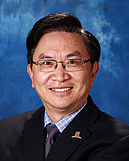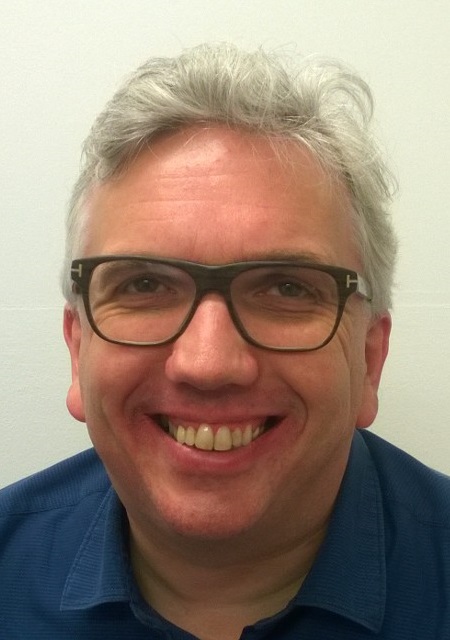Keynote Speakers
Peter Braam:
Performance Engineering for the SKA Telescope
Abstract
The SKA radio telescope will be a massive world class scientific instrument, currently under design by a world wide consortium, to progress to full operation in South Africa and Australia in the mid 2020's. The capabilities of the telescope are expected to enable major scientific breakthroughs. At the center of its data processing sits the Science Data Processor, a large HPC system with specialized software. In this lecture we will give a high level overview of the project and progress to the computing and data related architecture. Then we will discuss the work of the SDP design consortium to understand and achieve the many performance requirements leveraging hardware and algorithms. Among these is a requirement for memory bandwidth exceeding 100 PB/sec.

Bio
Peter Braam is a scientist and entrepreneur focused on large scale computing. After obtaining a PhD in mathematics under Michael Atiyah at Oxford, he was an academic at several universities including Oxford, CMU and Cambridge. Peter created the Lustre file system, which has become a key product for large scale HPC. From 2013, Peter has been contributing to architecture for data processing in the SKA telescope, and is researching and designing other solutions for data intensive computing.
Michael R. Lyu:
AI Techniques in Software Engineering Paradigm
Abstract
In the next decade, Artificial Intelligent (AI) techniques can see wide adoption in our daily life to release human burden. In our recent Software Engineering research, we investigated on the design of novel AI methods to facilitate all three major phases in software engineering: development, operation, and analysis. In this talk, I will first introduce the AI techniques we employed, including machine learning framework, classification, clustering, matrix factorization, topic modeling, deep learning, and parallel computing platforms. Then I will explain the challenges in each phase and describe our recently proposed methodologies. First, in the development phase, we suggested an automated code completion technique via deep learning. Our technique learns the code style from lots of existing code bases, and recommends the most suitable token based on the trained deep learning model and current coding context. Besides, to help developers in conducting effective logging, we designed a tool named LogAdvisor, which tells developers whether they should write a logging statement in the current code block or not. Secondly, in operation phase, we implemented a continuous and passive authentication method for mobile phones based on user touch biometrics. Different from the traditional password authentication scheme, our method can recognize malicious attackers based on abnormal user behaviors. Moreover, we developed PAID, which automatically prioritizes app issues by mining user reviews. Finally, in analysis phase, we designed systematic data analytics techniques for software reliability prediction. Besides, to make full use of the crucial runtime information, we proposed effective methods for every step in log analysis, including log parsing, feature extraction, and log mining. Furthermore, we developed a CNN-based defect prediction method to help developers find the buggy code. In the end, we expect to establish a comprehensive framework for systematic employment of AI techniques in the Software Engineering paradigm.

Bio
Michael Rung-Tsong Lyu is a Professor and Chairman of Computer Science and Engineering Department at The Chinese University of Hong Kong. He worked at the Jet Propulsion Laboratory, the University of Iowa, Bellcore, and Bell Laboratories. His research interests include software reliability engineering, distributed systems, fault-tolerant computing, service computing, multimedia information retrieval, and machine learning. He has published 500 refereed journal and conference papers in these areas, which recorded 26,500 Google Scholar citations and an h-index of 79. He served as an Associate Editor of IEEE Transactions on Reliability, IEEE Transactions on Knowledge and Data Engineering, and Journal of Information Science and Engineering. He is currently on the editorial boards of IEEE Transactions on Service Computing and Software Testing, Verification and Reliability Journal. He was elected to IEEE Fellow (2004), AAAS Fellow (2007), Croucher Senior Research Fellow (2008), IEEE Reliability Society Engineer of the Year (2010), and ACM Fellow (2015). Prof. Lyu received his B.Sc. from National Taiwan University, his M.Sc. from University of California, Santa Barbara, and his Ph.D. in Computer Science from University of California, Los Angeles.
Aad van Moorsel:
Benchmarks and Models for Blockchain
Abstract
Blockchain is a highly popular paradigm for non-centralized applications, especially in finance and trade. Performance is a major challenge for blockchains, since consensus approaches are known not to scale. In this presentation we address blockchain performance, from the perspective of model-based prediction as well as benchmark-based assessment. We present research results about smart contracts in the Ethereum blockchain and discuss the requirements for generic benchmarks for blockchain performance.

Bio
Aad van Moorsel is a Professor at the School of Computing in Newcastle University. He worked in industry from 1996 until 2003, first as a researcher at Bell Labs/Lucent Technologies in Murray Hill and then as a research manager at Hewlett-Packard Labs in Palo Alto, both in the United States. He got his PhD in computer science from Universiteit Twente in The Netherlands (1993) and has a Masters in mathematics from Universiteit Leiden, also in The Netherlands. After finishing his PhD he was a postdoc at the University of Illinois at Urbana-Champaign, Illinois, USA, for two years. He is the author of over 100 peer-reviewed research papers, and holds three US patents. His research group at Newcastle University conducts research in security, privacy and trust, with applications in payment, blockchain and smart systems. The group's research all contains elements of quantification, be it through system measurement, predictive modelling or on-line adaptation.
